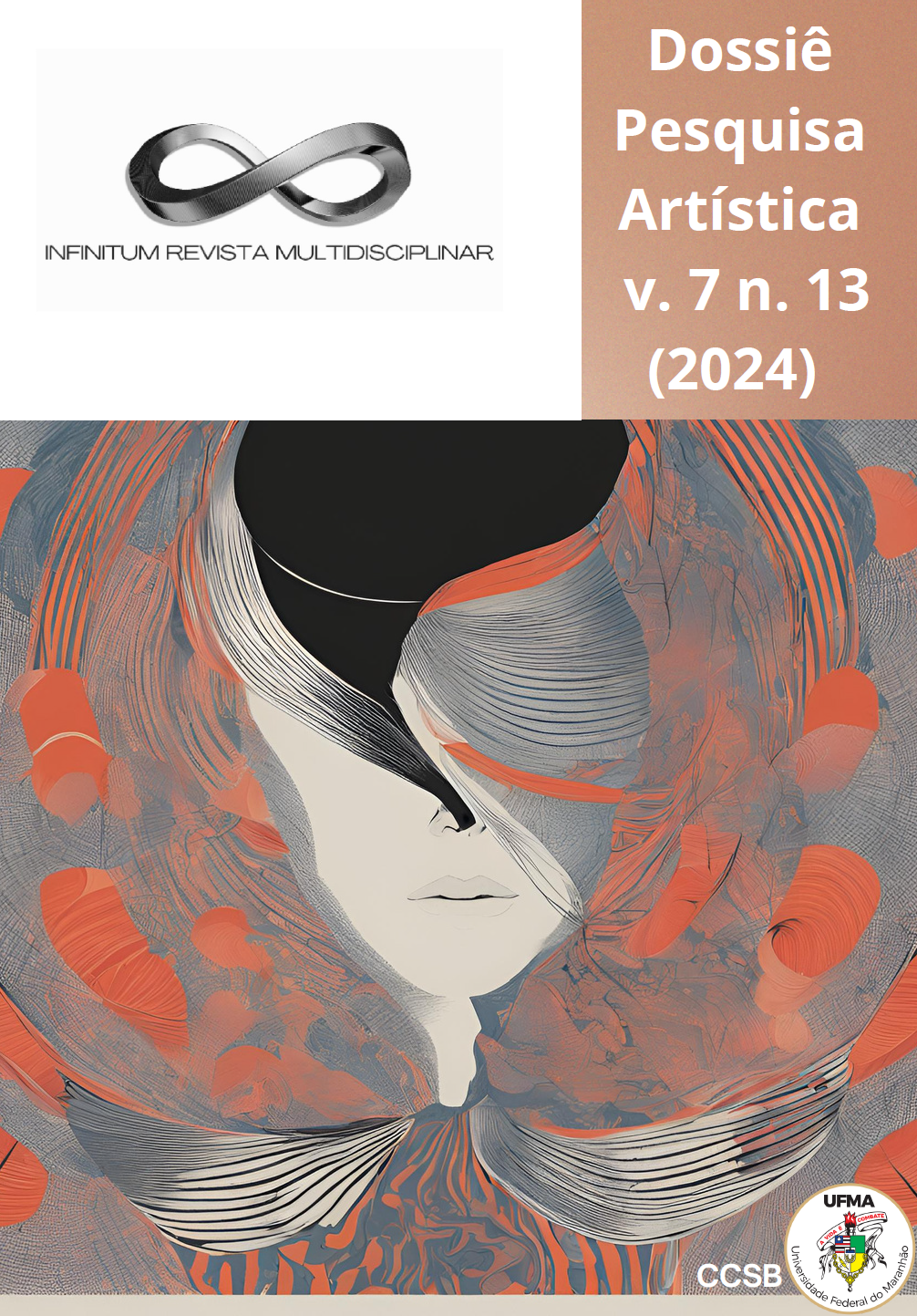SONGISTS IN DIALOGUES:
desires, absences and listening to yourself
DOI:
https://doi.org/10.18764/2595-9549v7n13.2024.13Keywords:
Artistic Research, Musical Creation, Conversation, Brazilian Popular SongAbstract
This article aims to reflect in the light of autoethnography and artistic research on musical creation processes by the authors Gabriela Silveira and Sarah Alencar, both singers and composers in the realm of Brazilian popular song. To this end, we use conversation as a method for the emergence of self-listening, in which we focus on recordings of dialogues between the authors/artists, where the creative processes of each were discussed. The reflections on the dialogues fostered different perspectives, according to the singularities of each research. For Gabriela, in research on an already finished artistic process, the dialogue was reflected upon through the lens of subjectivity in musical creation. Based on the work of “Sentimental Cartography” by Suely Rolnik, the figure of the cartographer was related to the figure of the composer to consider how subjectivity and desires can drive the process of musical creation. From the conversation conducted, triggering materials were identified to weave relationships and provoke reflections on the theme in the realm of musical creation of the present authors. For Sarah, in research on an ongoing artistic process, the conversation enabled tracing a reflection on the relational aspect of the theoretical subjects addressed in her research. Based on the theme of rhythm addressed in the conversation with Gabriela, it is proposed that body, memory, word, voice, and sound be examined under their relational aspect, so that a new song can be created. In this way, the song is planned from its composition, arrangement and performance based on its relationship with absences, in an action of sculpting silence.
Downloads
References
BOAL, Augusto. Jogos para atores e não-atores. Rio de Janeiro: Civilização Brasileira, 2008.
BRANCO, Lúcia Castello. O que é escrita feminina. São Paulo: editora brasiliense, 1991.
CAVARERO, Adriana. Vozes Plurais: Filosofia da expressão vocal. Trad. Flavio Terrigno Barbeitas. Belo Horizonte: Editora UFMG, 2011.
MARTINS, Leda Maria. Performances do tempo espiralar. Rio de Janeiro: Cobogó, 2023.
WISNIK, José Miguel. O som e o sentido: uma outra história das músicas. São Paulo: Companhia das Letras, 1999.
ROLNIK, Suely. Cartografia sentimental: transformações contemporâneas do desejo. Porto Alegre: Sulina; Editora UFRGS, 2011.
Artigos em periódico
BONAFÉ, Valéria & CAMPESATO, Lilian A conversa enquanto método para emergência da escuta de si. DEBATES | UNIRIO, n. 22, p.28-52, dez., 2019. Disponível em: https://seer.unirio.br/revistadebates/article/view/9651
FILHO, Paulo Oliveira Rios; MOLINARI Paula Maria Aristides de Oliveira. Pesquisa Artística na formação de professores de música. Revista Claves, João Pessoa, v. 1, p. 135-148, 15/out, 2012. Disponível em: https://periodicos.ufpb.br/index.php/claves/article/view/64545
PINHEIRO, Giovana S. Composições e Ritornelos: performances do corpo no tempo espiralar. Revista Liteafro, Belo Horizonte, Editora UFMG, 2022. Disponível em: http://www.letras.ufmg.br/literafro/arquivos/autores/Leda_Maria_Martins_resenha_Giovanna_Tempo_espiralar_def.pdf
ROLNIK, Suely. Políticas da hibridação. Cadernos de Subjetividade, São Paulo, v. 12, p. 14-22, Editora PUC, 2010. Disponível em: https://revistas.pucsp.br/index.php/cadernossubjetividade/article/view/38440
Downloads
Published
How to Cite
Issue
Section
License

This work is licensed under a Creative Commons Attribution 4.0 International License.
A Infinitum: Revista Multidisciplinar está licenciada com uma Licença Creative Commons Atribuição 4.0 Internacional.









